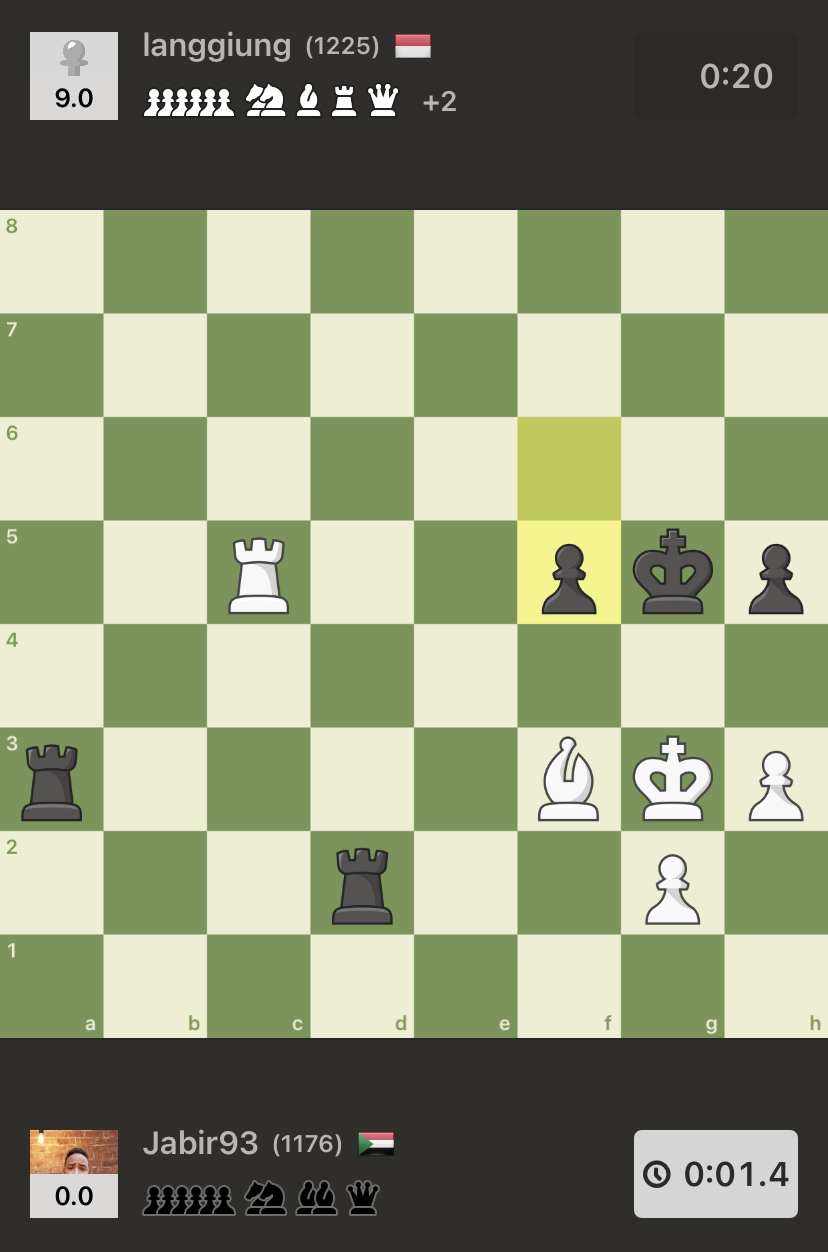Do one right thing: an exercise in removing indecision
Here's what to do
I genuinely didn't expect this, but a bunch of chess lessons are generalizable. For instance: if you don't know what to do (what move to make), at least don't do something that makes the situation worse, and ideally do something that makes it slightly better.
Let's say I don't know how to solve something:
I could have a life that is literally 10× richer and 10× faster if I had a big social circle, and I am not working on it and I probably won't be, THIS SUCKS
Okay! Do the dishes. Answer that one email that won't improve anything. Write a post. Order new lightbulbs. Eat something. Learn the bass clef. Go out and buy groceries. Make a playlist.
Some chess comparisons
"Why does it work?" can't be asked yet, because first we have to answer "What does 'work' mean here?".
And this is where drawing a comparison with chess really pays off.

I am usually playing ten-minute blitz games: both me and my opponent have five minutes to make all our moves. If you run out of time, you lose.
I used to spend a lot of time thinking about each move. Then I'd make a bad move anyway and feel bad. Then I'd lose on time and feel worse.
A while ago, I started purposefully trying to a) not lose on time and b) make random moves (avoiding blunders though) if I can't see any good moves to make. This made the game more enjoyable. Actually, let me rephrase this — it turned the game from "kinda unpleasant" to "kinda enjoyable".
(Another thing I am doing is learning the openings and "what would have been a good move in this specific situation". This also contributes to the enjoyability, but I don't know how to apply it to life yet.)
The end result is that I can do more games. Or, at least, I can do the same number of games without starting to feel bad.
Applying it back to life: if you have wasted your day on doing the dishes and buying groceries and ordering lightbulbs,
- you don't feel bad by the end of the day, and
- you start the next day with a full fridge and with new lightbulbs, and the lowkey "I can't even order lightbulbs" pang of guilt is no longer there.
An exercise in removing indecision
Is this good enough? It would be good enough if I had a different mindset (aka "death is okay"), but I am not there yet, so I don't think it's good enough.
However: I think the end result will be stronger than merely getting rid of a bunch of pangs of guilt.
"Doing one right thing" is an exercise in removing indecision.
Literally, time after time after time it trains you to follow the pattern "if I don't know what to do, do something". It's an emotional thing.
It would be great if the only thing indecision caused was "going on Reddit instead of doing the dishes". Indecision wouldn't matter much then. However, indecision also causes things like "spending three weeks not replying to the university admissions guy because you don't know which of the two courses you want". Then you don't reply at all and bad things happen.
I think the emotional pattern is the same in both situations:
- You can't tolerate the feeling of having chosen a worse {university course, etc} ⟶ therefore you would rather avoid choosing at all.
- You can't tolerate the feeling of not solving [the big problem] ⟶ therefore you would rather tune out.
So, training yourself to not fret over small suboptimal decisions like "doing the dishes rather than working on [the big problem]" might also help with doing other things faster.
At least that's the plan. We'll see.